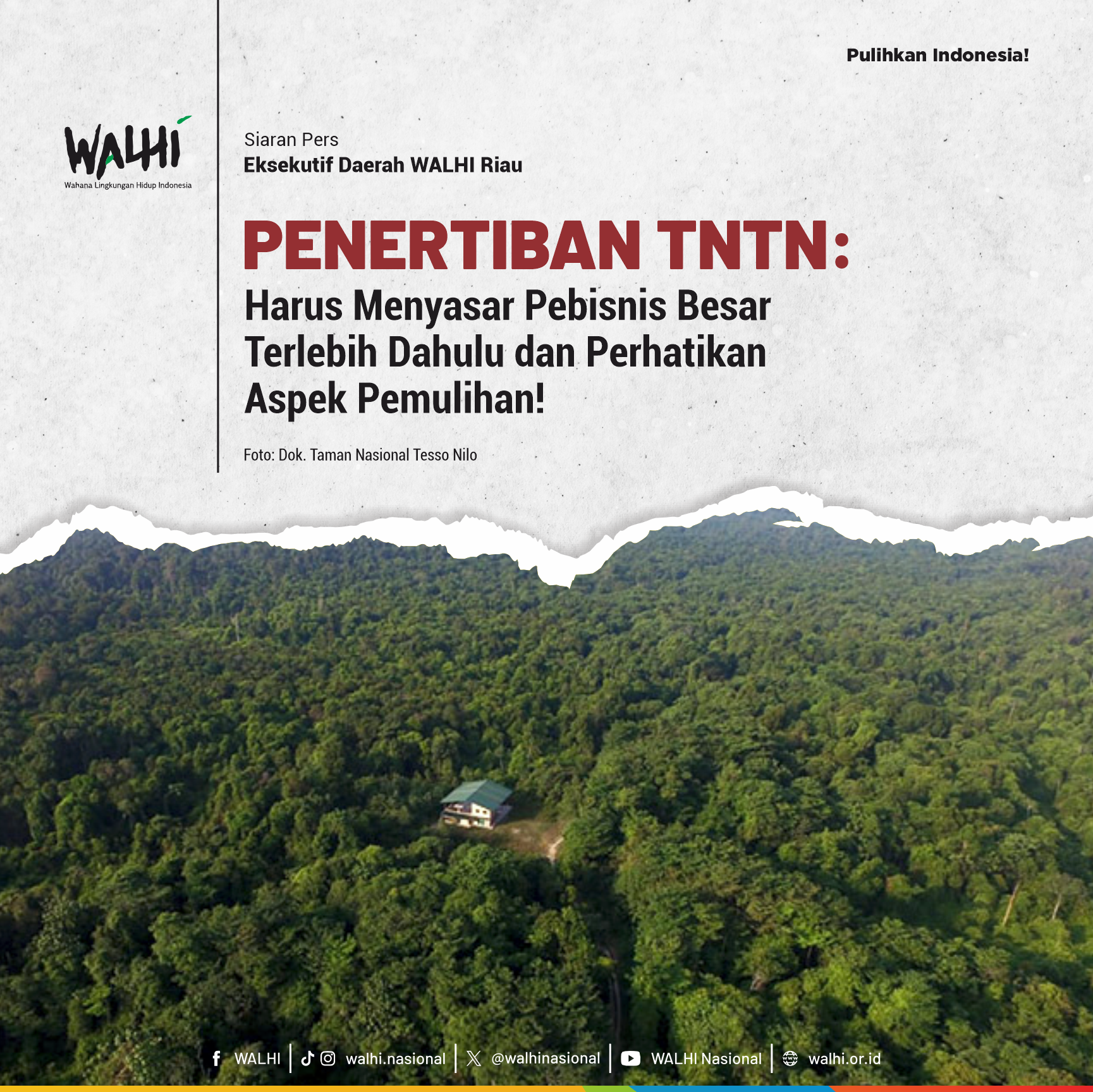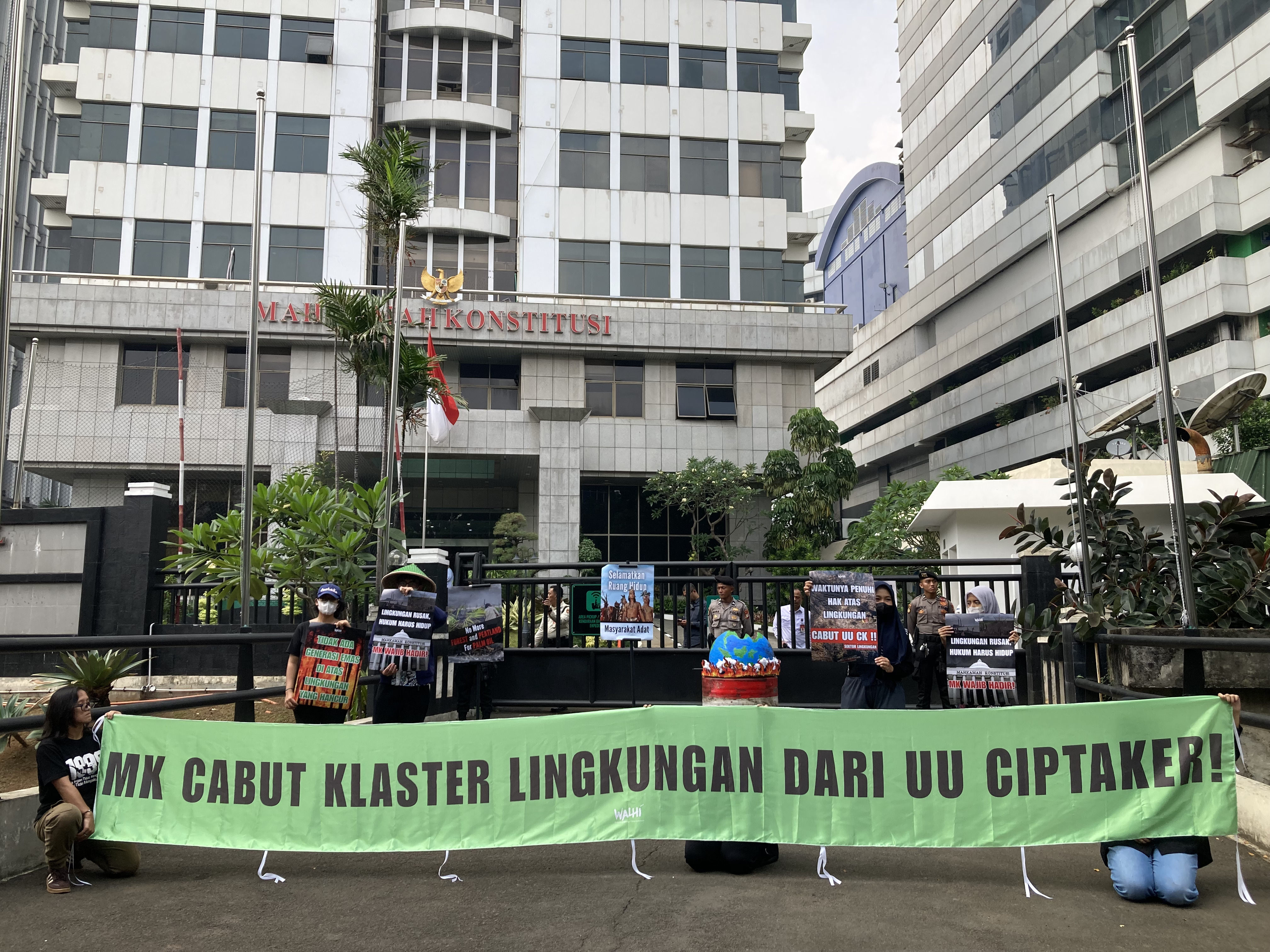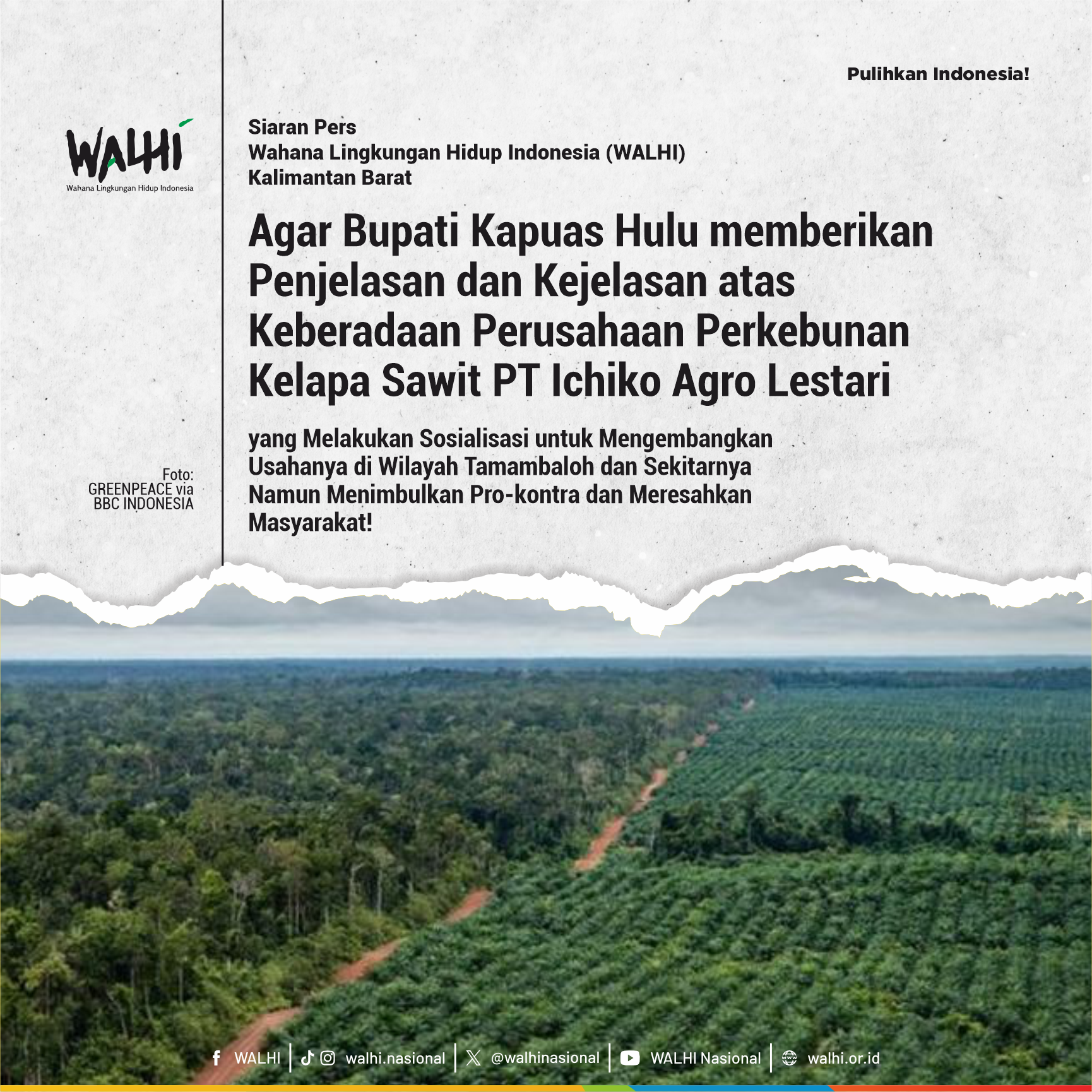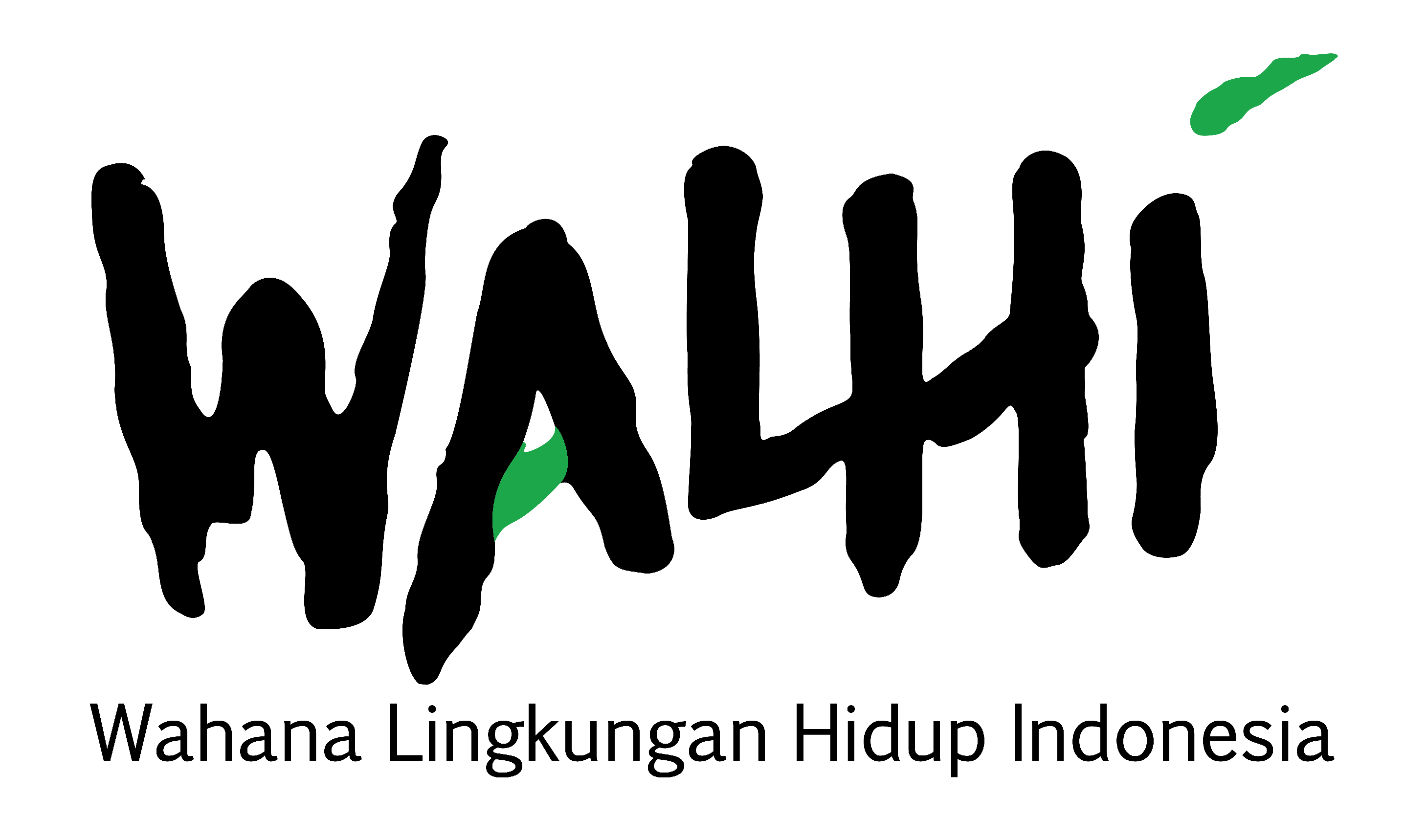Press Release Civil Society Coalition for Economic Justice The 5th Indonesia-EU CEPA Negotiation in Brussels, 9-13 July 2018 Jakarta, 19 July 2018. From Brussels, Belgium, representatives from Civil Society Coalition for Economic Justice urged some demands regarding the 5th Indonesia-EU CEPA (IEU CEPA) negotiation in Brussels on 9-3 July 2018. The representatives from Indonesia were coming from Indonesia for Global Justice (IGJ), KIARA, KPRI, and KSBSI. Some of the demands from CSOs are targeted some of the current issue being discussed at that time, such as investment issue, sustainable development issue and with regards to palm oil, fishery, and laborer as well as health issue. Moreover, the demands were stated when meeting with the Indonesian negotiator and European Union Commission in Brussels. Investment Chapter Provision Weaken the National Competitiveness At least, there are two main issues being criticized by civil society: regulation regarding performance requirements; and regulation regarding foreign investor protection along with the investment dispute mechanism. In terms of prohibition of performance requirement, the regulation of IEU CEPA will prohibit the implementation of TKDN requirement, technology transfer, and discrimination against utilization of produced goods or provided service by certain individual or company (in regards with procurement of goods and services particularly for UMKM/Micro, Small and Medium Enterprises), and including prohibition to prioritized utilization of local workers. Executive Director of IGJ, Rachmi Hertanti, emphasized that such regulation will harm the national economy and direction of government policy regarding industrial competitiveness. “The Performance Requirements regulation in IEU CEPA will limit and hamper the local industry competition including the effort to promote the increasing value added of production and strengthen the role of local industry and the economy of the small people in national economic development”, explained Rachmi. In fact, Rachmi explained in an official meeting between Indonesian Negotiators and CSOs on July 9, 2018 in Brussels, Indonesian Negotiator led by Ni Made Ayu Marthini (Director of Bilateral Negotiations) and Arif Havas Oegroeseno (Indonesian Ambassador to Germany) Europe is pushing for a list of prohibitions on performance requirements in the IEU CEPA, which of course will further complicate Indonesia's own space. “There is no doubt that the investment provisions in this IEU CEPA are not fair for people’s economy” Rachmi confirmed. Moreover, the investment rules in IEU CEPA will open up opportunities for foreign investors to easily drag the Government of Indonesia unilaterally into international arbitration claims worth up to billions of dollars. This mechanism is called Investor-State Dispute Settlement (ISDS). "The ISDS mechanism within the IEU CEPA will certainly be a setback from the Government of Indonesia's policy that has been issued to review ISDS due to Indonesia's experience of being sued by many foreign investors in ICSID. Therefore, we urge to remove ISDS, or whatever its name is, giving a sole right to foreign investors to sue the country ", explained Rachmi. Palm Oil shall be excluded in the Negotiation Civil society insistence on the issue of palm oil out of the negotiating table. This is because the issue of oil palm is not just a matter of trade, but there are environmental, social, and human rights violations that cannot be resolved until today. It is also linked to the Renewable Energy Directive II agreement stating that the EU will gradually reduce the use of biofuels sourced from food crops including palm oil up to o% by 2030. The reason the Indonesian government rejected the Renewable Energy Directive II by saying it is discriminatory on palm oil indisputable, because in 2030 all foods crops, not only palm that will be prohibited its use as biofuel. Yuyun Harmono, Climate Justice Campaign Manager of Walhi said "the decision to no longer use palm oil for biofuels is the right decision. First, it is not an alternative to fossil energy because carbon emissions are three times larger. Secondly, in terms of the economy is not much profitable, there is no added value that rotates in the country, because the export of palm oil in the form of CPO and then processed in the Netherlands and other European countries into biofuels. The government's move to continue pushing for Europe to receive palm oil in the Indonesia-EU CEPA trade agreement is wrong decission, palm oil should not be included in the trade negotiations. " Moreover, Yuyun adds that the government shall take correction step regarding palm oil policy in the country, one of which is to immediately issue palm oil moratorium policy as promised by President Joko Widodo in 2016. IGJ Senior Researcher, Olisias Gultom, explained that the issue of palm oil discussed in negotiations will only harm Indonesia in relation to its negotiating position. "Indonesia's export dependence on palm oil commodities and prioritizing palm oil in IEU CEPA negotiations will only harm Indonesia in the negotiations. Remember that the IEU CEPA is comprehensive, the priority of palm oil by Indonesia will only encourage "Trade off" interests that can be utilized by the EU. Therefore we expressly request that the palm should be removed from the negotiations ", explained Olisias. Olisias also urged that the Government of Indonesia immediately abolish the dependence of Indonesian exports on palm oil and divert trade support to other agricultural sectors that are more potential and environmentally friendly. Olisias also explained that the Trade and Sustainable Development chapter in IEU CEPA will regulate the standards and mechanisms for certification and labeling for palm products as one of the rules that will determine whether palm products from Indonesia are sustainable or not. “for us, the meaning of sustainability in IEU CEPA which is limited to certification stamps and labeling is not enough to answer the palm problem is so great. There needs to be meaningful 'sustainable' in the palm oil issue so that alternative mechanisms that support economic sustainability for the people will be found, "said Olisias. Laborer Protection and Job Assurance Labor issues in negotiations must be seen in the context of how economic cooperation can provide benefits for Indonesia and create jobs for the people of Indonesia. However, for the Secretary General of the Indonesian People's Movement Confederation (KPRI), Anwar Ma'ruf, Indonesia-EU CEPA will not benefit the people of Indonesia because many rules will limit Indonesia to open downstream industry. "The EU's insistence on abolishing the export ban policy on concentrates will certainly have an impact on the government's plans to open many jobs downstream. In addition, liberalization of government procurement will have an impact on local industries that depend on these activities, particularly SMEs. So, once again, the IEU CEPA rule will only bring economic injustice to the small people," Sastro said. In the context of workers protection, Eduard Marpaung explains that free trade is done to eliminate discrimination that impedes trade such as tariffs, taxes, laws, subsidies, etc. Civil Society Organizations often reject free trade because of inadequate supporting infrastructure such as the readiness to face the swift flow of capital and trade which in turn leads to marginalization of the lower society, laborers, coastal, indigenous peoples, fishermen, small farmers, UMKM, environmental destruction, etc. Usually free trade agreements with special protection areas of Export Processing Zone (EPZ), Special Economic Zone (SEZ), Bonded Zone region and the last OBVITNAS. "We want a sustainable trade, respect for human rights, the ILO Convention and Declaration on Business and Human Rights. We also request in bilateral or multilateral trade agreements including EU Indonesia CEPA no exceptions to workers' basic rights such as the right to association, collective bargaining, the right to strike, the elimination of child labor, maternity protection, OHS, etc. Included in these special areas ", said Eduard. Coastal Community Rights & Law Enforcement for IUU Fishing KIARA along with all coastal community in Indonesia consisting of fishermen, female fishermen, salt farmers, fish farmers, conservationists of mangrove ecosystem, and indigenous people of coastal and small islands, object European Union investment that took away their life, both in terms of tourism, mining, and palm oil. Those three investments are proven to be the ones that took away the life of coastal community and also damage the environment KIARA and coastal communities in Indonesia asked the EU Commission to exclude the three investments in the investment list of IEU CEPA. Sustainability should be understood as a condition in which coastal communities in Indonesia have sovereignty to access and utilize marine and fishery resources from generation to generation without being impeded by anything Health: Affordable Medicine for the People not Patent Monopoly In the EU proposal in Intellectual Property rights chapters, especially in the section on patents, it offers many arrangements that require a higher IPR (Intellectual Property Rights) commitment than TRIPS (IPR agreement in the WTO). The proposals of TRIPs plus, among others, the extension of the patent as compensation of the patent and drug registration process. The extension of the patent will permit the monopoly of the patent-owner or originator drug company, slowing the introduction of generic drugs, as competitors. Thus, it will increase drug prices and minimize public access to drugs. "This agreement will establish patent protection for a longer term, and it will affect people's access to drugs," said Lutfiyah Hanim, who conducted research on the EU proposal on the HKI chapter. In addition to the patent extension, Hanim also mentioned that the EU also proposes the application of data exclusivity, where unpatented patent drugs cannot be generated because generic companies are prohibited from using data to sell or generate generic versions. Therefore, Hanim stated, it was important for the Government of Indonesia to object the UE proposal in HKI chapter asking the implementation of TRIPs Plus. “There is no benefit for the people of Indonesia to implement the TRIPS Plus; it will only complicate the access and increase the price of medicine,” explained Hanim. **** Delegates of CSOs Indonesia Brussels, Belgium, 9-13 July 2018:
- Rachmi Hertanti, IGJ Executive Director
- Olisias Gultom, IGJ Senior Researcher on Energy and Economy Digital issue
- Parid Ridwanudin, Deputy of Knowledge Management of KIARA
- Anwar Ma’ruf, Secretary General of KPRI
- Eduard, Secretary General of KSBSI
- Lutfiyah Hanim, IGJ Researcher for People’s Access to Drugs
- Alvin Siregar, IGJ Researcher for People’s Access to Drugs
Further information, contact: Rachmi Hertanti: 0817 4985 180 Parid Ridwanudin: 0857 1733 7640 Anwar Ma’ruf: 0812 1059 0010 Eduard: 0813 9828 97278. Yuyun Harmono, Climate Justice Campaign Manager of WALHI: 081385072648






